Table of Contents
You pause a moment as you cross the threshold into your local vitamin shop. In front of you is row upon row of shelving displaying thousands of bottles and boxes of supplements.
An overwhelming experience even to the most experienced neurohacker.
Online stores can be even more confusing. Store algorithms decide what you first see when you begin your search.
Then your mind starts comparing individual capsule or tablet prices because you don’t recognize many of the brands displayed.
You’re not even thinking of the ongoing problem with counterfeit products masquerading as genuine brand name supplements. Or even well-known brands filling their supplement bottles with anything but what’s marked on the label.
Just one of many examples over the last few years comes from a 2013 investigation by Canadian researchers. The team used DNA testing on 44 bottles of brand name supplements sold by 12 companies.
Many of the dietary supplement bottles tested contained none of what the label said they did. Instead the bottles were filled with capsules containing soybeans, wheat, various grasses, and rice. In what were supposed to be nootropics like Ginkgo Biloba, St. John’s wort, and Ginseng.[i]
So how do you find brands you can trust to give you the benefits you need to achieve your neurohacking goals?
In this post you’ll discover how to choose a quality nootropic supplement. Sound advice based on what I’ve learned over the last 17 years. From spending $10’s of thousands on dietary supplements in dozens of online and local vitamin shops, and health food stores.
Choosing quality nootropic supplements
The following 7 steps will help you increase your odds of actually getting what you’re paying for.
Brand Names
As a general rule, stay away from drug store, department store and supermarket brands of supplements. Drug stores sell drugs and have little incentive to sell quality supplements to compete with one of their main sources of revenue – pharmaceuticals.
Department stores sell everything from appliances to furniture to clothes. And have no real incentive to ensure the quality of their private label supplements. Supermarkets sell food and other grocery items so their private label supplements are not a main money-maker.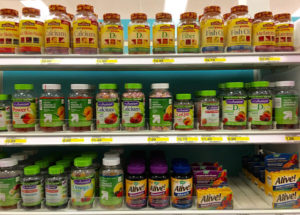
In 2015, the New York Attorney General demanded GNC, Target, Walgreens and Wal-Mart stop selling a number of their dietary supplements. Their investigation used DNA barcoding to analyze supplement bottle contents to compare to packaging labels.
The investigation discovered that all but five of the dietary supplements contained DNA that was either unrecognizable. Or from a plant other than what the product claimed to be.[ii]
When deciding on a brand, check out their website and ‘About’ page to find out who the company is. Find out how long they’ve been in business, and what their philosophy is toward manufacturing dietary supplements.
Find out what their customer service options are and how you can get ahold of someone if you have a question or complaint. The absence of any of this information is a red flag.
Check to see if the company offers a current Certificate of Analysis (CoA) for each supplement they produce that will verify the purity of their product. Or if a CoA is available on request. Absence of a CoA for each product is a red flag.
Check to see if the company provides evidence of a Quality Assurance certificate from a recognized 3rd party lab. I explain what to look for in these Certificates later in this article.
Read the reviews on Amazon, Swanson, iHerb and other nootropic supplement vendor websites. Find out what verified buyers of their products say about that product and company.
Pay attention to, or search for social media chatter about the supplement company to see what others are saying.
Check the Better Business Bureau for customer complaints. And do a Google search for law suits, negative reviews or media reports or stories about the company that can help you decide if the company is trustworthy.
 The main takeaway here is just because a company has a recognizable name does not mean they make quality supplements. As verified by the New York Attorney General.
The main takeaway here is just because a company has a recognizable name does not mean they make quality supplements. As verified by the New York Attorney General.
Once you find a company you know is trustworthy, do your best to buy the bulk of your nootropic supplements from them.
If you’re buying from an online supplement vendor, find out who the seller is. It should be sold by the original manufacturer or a company who has a track record of selling genuine products.
This is a bigger deal than most people realize. In 2013, a Natural News investigation found that the retail giant Amazon was allowing 3rd party sellers to sell counterfeit dietary supplements to unwary buyers.[iii]
The problem with Amazon and other online retail stores who allow nearly anyone a storefront is they don’t have the ability to police literally 10’s of thousands of 3rd party sellers who sell products through their site.
But it gets worse because you can’t rely on Amazon’s star review system either. All products that Amazon believes are identical on their site assigns the same star rating to that product. Regardless of who the seller is. You can read the entire story here for more > “Amazon.com (AMZN) sells fake, counterfeit nutritional products to unsuspecting consumers”
You must ensure that the company from whom you are purchasing a dietary supplement is legit. And has a track record and high quality reputation for selling genuine, pure nootropic supplements.
I’m not saying to avoid getting supplements from Amazon. I purchase nootropic supplements from various vendors on Amazon every month. The big takeaway here is “buyer beware” and do your research. Using the information you’ve learned here on Nootropics Expert.
-
Quality Assurance
In the United States, the FDA does not oversee every single supplement sold like they control pharmaceuticals. But it does regulate supplements to a certain extent under the Dietary Supplement Health and Education Act of 1994 (DSHEA).[iv]
The law prohibits supplement makers from marketing adulterated or misbranded products. And the FDA does take action against companies with an adulterated or misbranded product after it reaches the market.
But the administration itself says, “Dietary supplements are not approved by the government for safety and effectiveness before they are marketed.”
So supplement manufacturers are left to police themselves. It’s only when a product is found to be defective, and reported, that the FDA can take action.
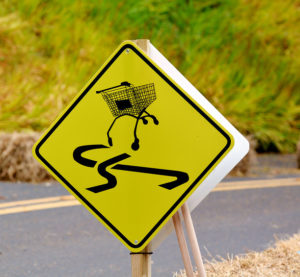 It’s buyer beware when buying nootropic supplements. So it’s up to you to check the label to find out where the supplement comes from.
It’s buyer beware when buying nootropic supplements. So it’s up to you to check the label to find out where the supplement comes from.
Some tests on U.S. products have shown defects. But supplements sourced from countries like China, India and Mexico are more likely to contain toxic ingredients, and even prescription drugs.[v]
The FDA provides an updated list of tainted supplements you can check here > Tainted Supplement List.
Choose reputable brands who have a track record of providing quality product. These companies will tell you their entire supply chain from farm to capsule. Their website and marketing material will tell you about purity testing before, during and after encapsulation.
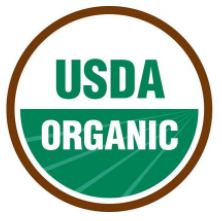 Check the label to see if it is USDA-certified organic which ensures the product is free of toxins, pesticides and herbicides. And check the label for certification seals. These are independent labs who test for quality and discussed in the next section.
Check the label to see if it is USDA-certified organic which ensures the product is free of toxins, pesticides and herbicides. And check the label for certification seals. These are independent labs who test for quality and discussed in the next section.
You can also contact the manufacturer and ask how they produce their products. They should be able to provide a lot-specific Certificate of Analysis if you request it. Find out if raw ingredients are sourced directly from the farms that grow them. Or if they come from distributors. And where those distributors source the raw ingredients.
-
Certificate of Analysis (CoA)
Several qualified independent labs test dietary and nootropic supplements for quality, potency and toxicity. Some dietary supplement manufacturers feature certification labels on their packaging. And lately I’ve seen supplement labels with a QR code that you can scan with your phone. The scan may allow you to download a Certificate of Analysis to your phone. Or it’ll take you to a page on their website where they explain how they test their supplements.
But QR code or not, I encourage you to make the effort to find the supplement maker’s website. And learn about their testing program. If a supplement company doesn’t have a comprehensive testing program in place you shouldn’t be buying their product. Find another company who makes or bottles the nootropic you’re looking for and who have a testing program in place.
The following are some of the larger testing laboratories that you’ll see on nootropic supplement labels …
The US Pharmacopeia provides a seal for labels verifying that a supplement is “USP Verified”. The company offers GMP (Good Manufacturing Practices) facility auditing, product testing, product quality control, and product documentation review. Their website also offers a list of dietary supplements that have received the USP Verified mark.
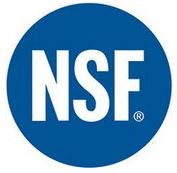 NSF International is an independent, not-for-profit organization that provides certification for dietary supplements. The NSF certification process includes: a) label reviews to verify product formulation and marketing claims b) formulation reviews to identify and quantify the dietary ingredients declared on the label c) contaminant testing and d) GMP facility inspection.
NSF International is an independent, not-for-profit organization that provides certification for dietary supplements. The NSF certification process includes: a) label reviews to verify product formulation and marketing claims b) formulation reviews to identify and quantify the dietary ingredients declared on the label c) contaminant testing and d) GMP facility inspection.
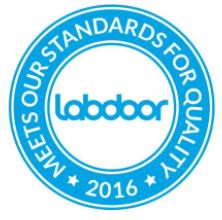 Labdoor is an independent company who buy products off retail shelves and online. And send the supplements to a FDA-registered lab for analysis. The analysis includes measurements of active ingredients and potential contaminants. Labdoor then generates a ranking on each product and publishes the results on their website you can access for free.
Labdoor is an independent company who buy products off retail shelves and online. And send the supplements to a FDA-registered lab for analysis. The analysis includes measurements of active ingredients and potential contaminants. Labdoor then generates a ranking on each product and publishes the results on their website you can access for free.
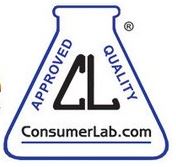 Consumer Lab is an independent, subscription-based service that tests dietary supplements and offers the test analysis to their members. The company selects products to review. And also accepts submissions from supplement manufacturers for their review and analysis. Their testing methods include a yearly GMP review, and a comprehensive spectrum of lab tests for each supplement.
Consumer Lab is an independent, subscription-based service that tests dietary supplements and offers the test analysis to their members. The company selects products to review. And also accepts submissions from supplement manufacturers for their review and analysis. Their testing methods include a yearly GMP review, and a comprehensive spectrum of lab tests for each supplement.
A word of a caution about Consumer Lab however – the company does not disclose the brand names of supplements that fail their testing if the manufacturer has paid them their $4,000 yearly fee.
And Consumer Lab “reviews” of supplements are heavily biased in favor of conventional, mainstream medicine. Any experienced neurohacker will notice a lack of knowledge in their recommendations because they are not based on natural or alternative medicine. I recommend only using them for supplement ingredient analysis.
-
Therapeutic Dosages
To make it simple, there is no established “therapeutic dosage” level for individual dietary supplements. Most labels provide commonly used and safe dosage recommendations.
These doses are often too low to provide cognitive benefit. I recommend following dosage instructions for each of the nootropics on the Nootropics Expert® Nootropics List. The dosage recommendations are based on clinical trials, user reviews and personal experience.
If you’re trying a nootropic supplement for the first time, always start with the lowest suggested dose and see how you react.
-
Other Ingredients
Check most supplement bottle labels and you’ll see a list of so-called “inactive” ingredients. Often called “other ingredients”, this list includes chemical sounding names you likely will not recognize.
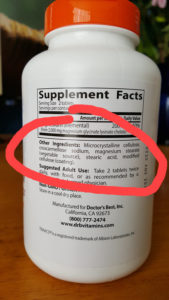 The list of “other ingredients” on supplement labels are used to increase shelf life, bind tablets together, improve consistency, improve moisture resistance, help stabilize ingredients, add bulk (to fill a capsule), and add color and flavor.
The list of “other ingredients” on supplement labels are used to increase shelf life, bind tablets together, improve consistency, improve moisture resistance, help stabilize ingredients, add bulk (to fill a capsule), and add color and flavor.
“Excipients” is a general term you’ll encounter on some supplement labels. And includes any one of the “other ingredients” I explain below.
The FDA does regulate these ingredients as food additives. And ‘officially’ are considered safe in small quantities. Nootropic supplement labels sometimes include:
- Cellulose – a binding, or thickening agent, or otherwise augmenting the consistency of the ingredients – sometimes the capsule is made of cellulose
- Magnesium stearate (vegetable stearate, stearic acid) – a “flow agent” or lubricant that speeds up the manufacturing process and is used because it prevents ingredients from sticking to mechanical equipment – also makes the tablet easier to swallow – the problem with magnesium stearate is it suppresses your natural killer T-cells which are a key component of your immune system[vi]
- Titanium Dioxide – a pigment used to color a supplement – the problem with titanium dioxide is it leads to mitochondrial dysfunction[vii], damages astrocyte cells which leaves them unable to absorb glutamate, and induces potent oxidative stress and mitochondrial damage in glial cells.[viii] All damaging brain health and cognition.
- Silica (silicon dioxide) -acts as an anti-clumping agent that prevents ingredients sticking to mechanical equipment, and ensuring even distribution of active ingredients throughout the mix
- Rice flour – a filler used to fill the rest of the capsule
Those are the main ones found in a few well-known individual nootropic supplements. The full list of extra ingredients you may encounter contains dozens of ‘FDA-approved’ ingredients. Sometimes you simply can’t avoid one or more of these ingredients if it’s a nootropic you need to add to your stack.
But lately I’ve noticed new companies entering the dietary supplement market who avoid “other ingredients” all together. The thing is if you’re working on optimizing brain health, why consider a supplement with unnecessary, unhealthy “extra ingredients” in the first place?
The best nootropic supplements on the market have no extra ingredients. Mind Lab Pro®, and the Performance Lab® line of supplements have been the leaders in this industry because the only “other ingredients” including in their supplements are NutriCaps® capsules made from fermented tapioca.
Do your best to get nootropic supplements with zero “other ingredients”.
-
Bioavailability
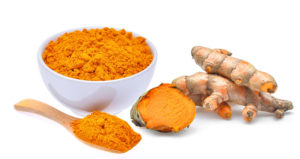 Some of the things you eat, and even some of the supplements you may select are not all ‘absorbed’ for use by your brain. For example, some of the important compounds found in the powerful nootropic Turmeric are poorly absorbed.
Some of the things you eat, and even some of the supplements you may select are not all ‘absorbed’ for use by your brain. For example, some of the important compounds found in the powerful nootropic Turmeric are poorly absorbed.
Another example is L-tyrosine which is an amino acid that is directly involved in the synthesis of dopamine, norepinephrine and epinephrine in your brain. But is not efficiently absorbed by your body when taken as a nootropic supplement.
To boost the bioavailability of L-Tyrosine, you may want to try N-Acetyl-L-Tyrosine (NALT) because it is said to be more bioavailable to your brain. I personally find both L-Tyrosine and NALT work equally well for my stack. But you may find you prefer one over the other after using each one for a week or two. Trial and error is key to success with nootropics.
The bioavailability of Turmeric can be boosted by 2000% simply by adding 20 mg Piperine when used as a nootropic.[ix]
Several nootropic supplements depend on the right form, or another ingredient they are stacked with, to ensure they work efficiently as a cognitive enhancer.
Read the dosage notes and suggestions here on Nootropics Expert® carefully for each nootropic supplement you intend to add to your stack. To make sure you’re getting all the value you can from your investment.
-
Extracts vs. Whole Herb
One of the most confusing things when choosing a supplement is reading a label. And trying to decipher if “whole root” is better than an “extract” reduced by some ratio. Or if a tincture is more effective than a capsule or tablet.
So what is a neurohacker to do? Well, it depends on the herb. And that’s where Nootropics Expert® saves the day.
Each of the dozens of nootropics on my Nootropics List has a full review of each nootropic supplement. Which includes “Recommended Dosage” and “Where to buy or Type to buy” with recommendations in each.
Turmeric is a classic example of a herb that works better as a ground powder for things like arthritis or an autoimmune condition. The Curcumin extracted from Turmeric works better as a nootropic for cognitive benefit.
Resveratrol purity is extremely important. And an extract from Japanese Knotweed provides more cognitive benefit than other forms of Resveratrol extract.
Lion’s Mane Mushroom dosing depends on the strength of the extract. Ashwagandha comes as a ground powder, or a standardized extract. And dosage of the extract is in mg compared to grams for plain powder.
So extracts vs whole herb is often critical to your buying decision. You can avoid buying the wrong supplement by reviewing the Nootropics Expert “where to buy or type to buy” in the review for the nootropic before you travel to the vitamin shop.
Nootropic Supplement Evaluation Checklist
When choosing a nootropic supplement brand, naturally we want supplements that are authentic and pure.
So with some due diligence and a “buyer beware” attitude, you now have the information you need to find supplement brands you can trust.
Use the recommendations here on Nootropics Expert® to help you select the best form of each nootropic supplement. And follow the dosage recommendations provided in each nootropic review.
Take this checklist with you each time you go supplement shopping. And keep these key criteria in mind as you select your nootropic supplements.
- Brand Name – choose and buy from reputable brands
- Quality – look for country of origin and choose certified organic (ignore “all natural”) if possible
- Certification – labels with seals like USP Verified or NSF International
- Bioavailability – use the review here on Nootropics Expert to choose the best form for cognitive function
- Other ingredients – select supplements containing only the ingredients you want with no extra additives of any kind
- Extracts – look for standardized extracts of most herbs
And be very suspicious of two identical bottles of a supplement with significantly different prices. The lower priced bottle is very likely counterfeit and will not contain the nootropic you are shopping for.
After your first couple of shopping trips you will have selected your most trusted brands. And this checklist will come to you automatically as you stand in front of the supplement shelf.

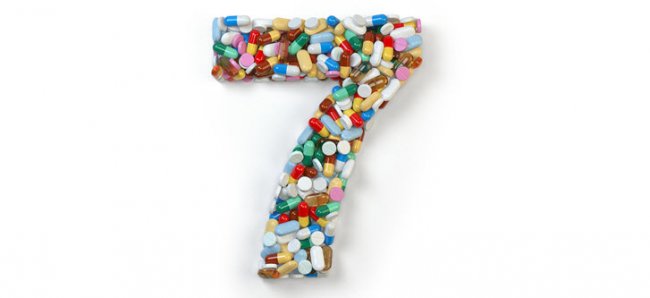






Join The Discussion - 37 comments
Noah
November 26, 2024
Hey, David! Regarding magnesium stearate, we can say that this is taking data from a 1990 study out of context. And further misusing that information to support the thesis that magnesium stearate suppresses the body’s immune T cells. There’s a good chance that this is a misconception. And it has given rise to myths about the harmfulness of magnesium stearate as an excipient used in capsules.
In any way, the less of the not-quite-necessary stuff in the supplement, the better
David Tomen
November 26, 2024
Noah, and if all the supplements you used contained magnesium stearate? That is no longer a minimal dose of something that should not be in a supplement in the first place. If there is simply the potential for harm I don’t want it in my body. And would not recommend it for any one else either.
Performance Lab is not the only company who takes this message seriously. Look at any supplement made my Pure Encapsulations who have been around since 1991. They refuse to include magnesium stearate in any of their supplements. I wonder why …
"Nordic"
June 15, 2023
Important information here, I stopped using certain supplement because it contained Titanium Oxide, which I think is currently banned already in this area of the world, but there are still products in stores that contain it. Completely unnecessary ingredient in “health supplement” why would they put it there, just to discredit themselves and their customers?
Otherwise the supplement I’m talking about had pretty good selection of ingredients listed in, and the price was low compared to that.
David Tomen
June 16, 2023
Titanium Dioxide has been banned by the European Union and can no longer be used in food, supplements, or pharmaceuticals. There is no such ‘ban’ in the USA unfortunately. Titanium Dioxide is not safe to use and should not be in any supplement. I’ve been ranting about this for years. One of the reasons I recommend Mind Lab Pro and Performance Lab products is because of their purity. They do not use Titanium Dioxide or any other toxic “other ingredient” in any of their supplements.
Juck
April 8, 2023
Hello, David! Is Doctor’s Best CURCUMIN PHYTOSOME with MERIVA capsules suitable even though it contains other ingredients such as “modified cellulose (vegetable capsule), cellulose, magnesium stearate (vegetable source), silicon dioxide?” I’m taking one 500mg capsule twice a day. Thanks for your invaluable dedication to the nootropic society.
David Tomen
April 9, 2023
Juck, I suggest using up the supplement you currently have and then find one that does not contain magnesium stearate or silicon dioxide. Studies show these compounds can be toxic and they are not necessary to produce a quality supplement.